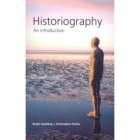Planning
Planning at A level takes several forms. Awarding bodies offer quite different specifications, and choices within these specifications. However, there are also strict requirements common to all, including the teaching of material that covers a minimum of 200 years and the teaching of British history. The decision about which specification and which topics to teach will require consultation, careful attention to the resources available, and a clear timetable for implementation. There are then decisions to be made, some of them in consultation with senior leadership, about AS and A Level, and the scheduling and balance of time given to the different components of the specification. Individual teachers will need to plan to teach the topics in ways that enable their students to meet the assessment criteria and develop their historical thinking. In this section you will find helpful articles, guides and resources to enable you to plan your A Level teaching.
-

Chatting about the sixties: historical reasoning in essay-writing
ArticleClick to view -

Distant voices, familiar echoes: exploiting the resources to which we all have access
ArticleClick to view -

Using remote voting to involve everyone in classroom thinking at AS and A2
ArticleClick to view -

OCR History A Level History: Democracy and Dictatorship in Germany 1919-63
ArticleClick to view -

Cultivating curiosity about complexity
ArticleClick to view -

Historiography - an Introduction Roger Spalding and Christopher Parker
ArticleClick to view -

Liz Kellaway's Top Tips
ArticleClick to view -

Carr, Evans, Oakshott and Rudge: the benefits of AEA history
ArticleClick to view -

Life by sources A to F: really using sources to teach AS history
ArticleClick to view -

Duffy's devices: teaching Year 13 to read and write
ArticleClick to view -

Are you ready for your close-up?
ArticleClick to view -

How visual learning in 'A' level history can improve memory and conceptual understanding
ArticleClick to view -

Placing history: territory, story, identity - and historical consciousness
ArticleClick to view -

Stretching the straight jacket of assessment: use of role play and practical demonstration to enrich pupils' experience of history at GCSE and beyond
ArticleClick to view -

Reading and enquiring in Years 12 and 13
ArticleClick to view -

It's a lot harder than politics'...students' experience of history at Advanced Level
ArticleClick to view -

Basket weaving in Advanced level history...how to plan and teach the 100 year study
ArticleClick to view -

Mushrooms and snake-oil: using film as AS/A level
ArticleClick to view -

The new history 'AS-Level': principles for planning a scheme of work
ArticleClick to view -

A poodle with bite: Using ICT to make AS level more rigorous
ArticleClick to view

